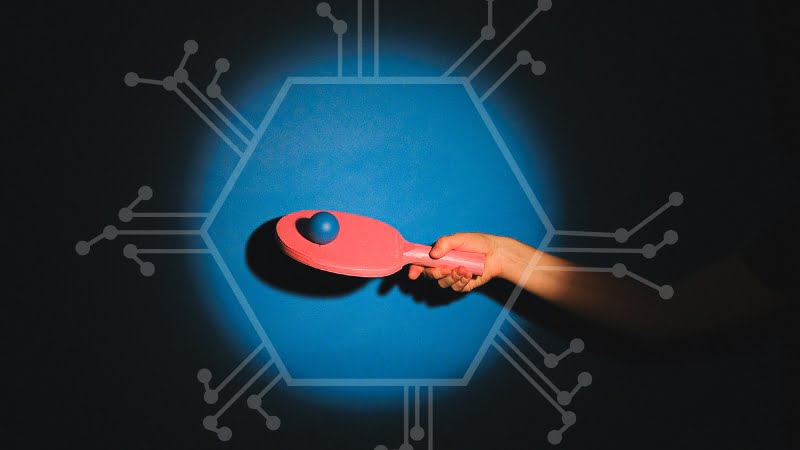
A team of researchers from England has taught a non-biological AI material to play Pong. However, the jelly can not only play the video game, it also gets better over time.
The interest of science in teaching other life forms the game of “Pong” using artificial intelligence has existed for years. A famous example of this is Elon Musk. A few years ago, his company Neuralink released a video showing a monkey controlling the video game using an implanted chip.
Researchers from the Australian start-up Cortical Labs have also already taught a silicon chip based on human brain cells to play Pong. Now scientists from the University of Reading in England have also tried it. As part of a new study, a team led by Yoshikatsu Hayashi wanted to find out whether a non-biological material could also play Pong. The result: It can. And not only that: the AI is even getting better at it.
Memory made of jelly: AI learns to play Pong
For the study, Hayashi and his team used a hydrogel, a jelly-like material that is used for a variety of applications, such as components for soft robots.
The hydrogel contains charged particles called ions. Electrical stimulation causes them to move through the material, pulling water molecules with them. This changes the shape of the jelly. This change in the distribution of the ions influences the next arrangement of the particles, explains Hayashi. “It's like a physical memory.”
To test whether this “memory” could make the hydrogel play Pong, the researchers used electrodes. In this way, they combined the material with a computer. The game itself is divided into a grid of six squares, which correspond to six pairs of electrodes. Each time the ball moved through one of the squares, the corresponding electrodes sent an electrical signal to the hydrogel, causing the ions to change position.
The sensor electrodes then measured the electrical current of the rearranged ions and fed this information back to the computer, which interpreted it as a command: it moved the game paddle to a new position. Over time, a basic memory was formed in this way, as the movement of the ions was influenced by their previous rearrangements.
Jelly AI improved steadily
At first, the hydrogel only hit the ball about half the time. After about 24 minutes, however, the hit rate increased to 60 percent. This indicates that the material can update its “memory” of the ball's movement based on the ion pattern. The improved performance also led to longer rallies.
The research team conducted control experiments where they fed the material incorrect information about the ball's position or didn't stimulate it at all. Under these conditions, the hydrogel's Pong game showed no signs of improvement. This led to the assumption that it would only get better if it was fed the right information.
“More work needs to be done”
The English research group's material did not master Pong as quickly as DishBrain. However, this is because hydrogel is a much simpler system, says Hayashi. Nevertheless, the results show that it has additional computational capabilities. Scientists could use these to develop more efficient algorithms.
Brett Kagan of Cortical Labs also spoke positively about the new study. It is a first step toward demonstrating that synthetic materials can use a basic form of 'memory' to improve performance,” he explains. “The system demonstrates memory in a similar way to how a riverbed records the memory of a river.”
The authors from England tried a creative approach to transfer concepts from neuroscience to a more physically based system, Kagan continued. However, more work needs to be done in the future.
The video game Pong has been around since the 1970s and is considered an absolute classic. The principle is simple: the players control a vertical or horizontal line and have to hit a virtual tennis ball back and forth.
Also interesting:
Source: https://www.basicthinking.de/blog/2024/08/23/ki-aus-gelee-lernt-pong-spielen-und-wird-immer-besser/


